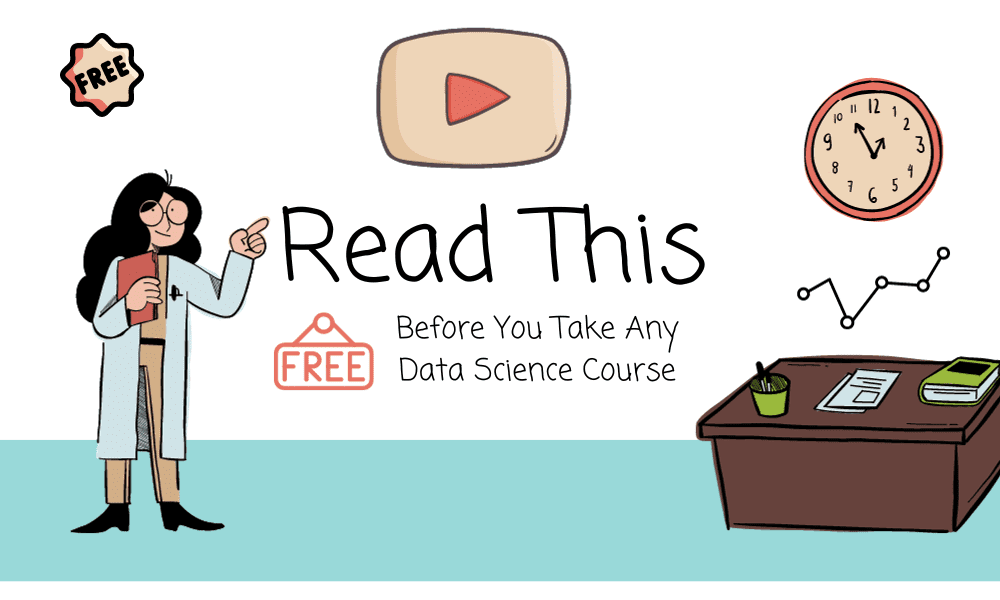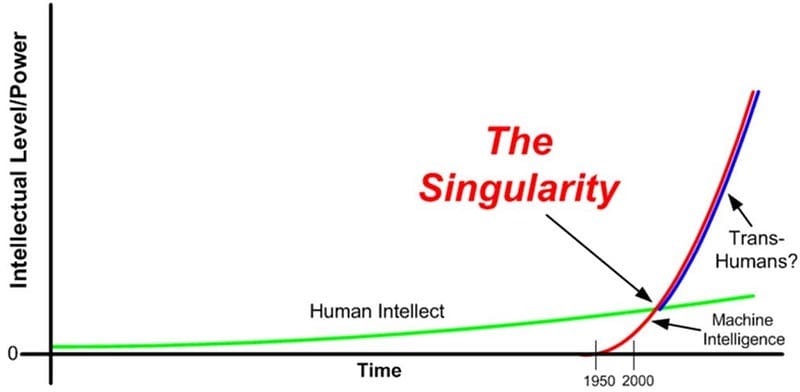[ad_1]

Image by Author
In today’s digital age, the quote by Michael Hakvoort, “If you’re not paying for the product, then you are the product”, has never been more relevant. While we often think of this in relation to social media platforms like Facebook, it also applies to seemingly harmless free resources such as YouTube courses.
Sure, the platform earns revenue through ads, but what about the time, energy, and motivation you invest? As data becomes increasingly valuable, it’s essential to carefully evaluate the potential impact of free data science courses on your learning journey.
With so many options available, it can be overwhelming to determine which ones will provide real value. That’s why taking a step back to consider some critical factors before diving into any free resource is crucial. By doing so, you’ll ensure that you make the most out of your learning experience while avoiding common pitfalls associated with free courses.
Free courses often provide a one-size-fits-all curriculum, which might not align with your specific learning needs or skill level. They might cover fundamental concepts but lack the depth required for a comprehensive understanding or for tackling complex, real-world problems. Some free courses may have all the necessary ingredients to solve real-world data problems, but they lack structure, leaving you confused about where to start.
Learning a programming language alone can be challenging, especially if you come from a non-technical background. Data Science is a field that demands a hands-on approach. The free courses often offer limited opportunities for interactive learning, such as live coding sessions, quizzes, projects, or instructor feedback. This passive learning experience might prevent you from applying concepts effectively, and eventually, you will give up on learning.
The internet is flooded with free courses, making it challenging to discern the quality and credibility of the content. Some might be outdated or taught by individuals with limited expertise (Fake Gurus). Investing your time in a course that doesn’t offer accurate or up-to-date information can be counterproductive.
Here is a list of free courses that I believe are of high quality:
- Introduction to Programming with Python by HarvardX
- Statistical Learning with R by StanfordOnline
- Data-Science-For-Beginners by Microsoft
- Databases and SQL by freeCodeCamp
- Machine Learning Zoomcamp by DataTalks.Club
Unlike paid courses, free resources do not come with external accountability measures such as deadlines or grades, making it easy to lose momentum and abandon the course midway. The lack of financial commitment means that students must rely solely on their internal drive and discipline to stay motivated and committed to completing the course. College is a great example of this. Students think 100 times before leaving college because of the costs involved. Most students complete their bachelor’s degree because they have taken a student loan and need to pay it back.
Networking is a significant part of building a career in data science. Free courses typically lack the community aspect found in paid programs, such as peer interaction, mentorship, or alumni networks, which are invaluable for career growth and opportunities. There are Slack and Discord groups available but they are usually community-driven and may be inactive. However, in a paid course, there are moderators and community managers who are responsible for making networking easier between students.
Paid courses often provide career services, such as resume reviews, certification, job placement assistance, and interview preparation. These services are essential for individuals transitioning into a data science role but are typically unavailable in free programs. It is crucial to have guidance throughout the hiring process and know how to handle technical interview questions.
While not always necessary, certifications can boost your resume and credibility. Free courses may offer certificates, but they often don’t carry the same weight as those from accredited institutions (Harvard / Stanford) or recognized platforms. Employers might not value them as highly, which could impact your job prospects. Additionally, certification exams evaluate key skills essential for working with data in any job. They assess your coding, data management, data analysis, reporting, and presentation abilities.
While free courses on data science can be a valuable resource for initial learning or brushing up on skills, they have certain limitations. It’s important to consider these limitations against your personal goals, learning style, financial situation, and career aspirations. To ensure a well-rounded and effective learning experience, you should consider supplementing free resources with other forms of learning or investing in a paid bootcamp.
In the end, the most crucial factor that will help you become a professional data scientist is your dedication and focus on achieving your goals. You will not learn anything if you lack the drive required, no matter how much money you spend on the course. So, before you dive into the world of data, please think ten times if this is the right path for you.
Abid Ali Awan (@1abidaliawan) is a certified data scientist professional who loves building machine learning models. Currently, he is focusing on content creation and writing technical blogs on machine learning and data science technologies. Abid holds a Master’s degree in Technology Management and a bachelor’s degree in Telecommunication Engineering. His vision is to build an AI product using a graph neural network for students struggling with mental illness.
[ad_2]
Source link


